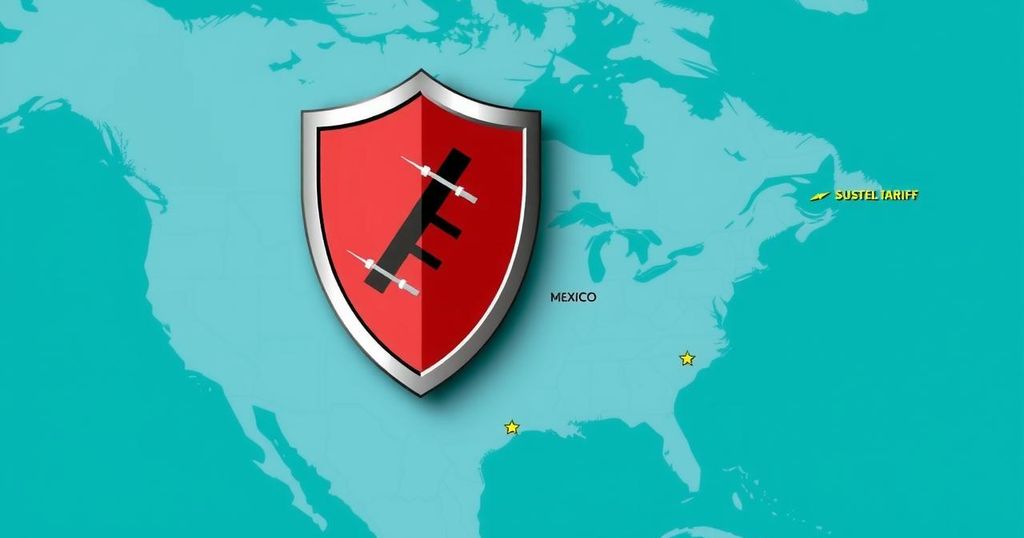Canada and Mexico Avoid Trump’s April 2 Tariffs: Key Insights
On April 2, 2024, President Donald Trump announced reciprocal tariffs starting at 10 percent on various imports, notably exempting Canada and Mexico. Existing duties between the US and these nations will remain, including specific automotive tariffs that are soon to take effect. Canada and Mexico’s exemptions are tied to prior tariff agreements and the US-Mexico-Canada Agreement. Responses from Canadian and Mexican leaders indicated intentions to protect their economies against such tariffs.
In an announcement made on April 2, 2024, President Donald Trump unveiled comprehensive reciprocal tariffs aimed at multiple nations, significantly emphasizing his stance that the United States has been exploited by foreign entities. This plan initiated a baseline tariff rate of 10 percent on imports, escalating to 45 percent for various countries. Notably, Canada and Mexico were exempt from these new tariffs, which allowed them to avoid the impending economic strain that could have affected their trade relations with the United States.
Despite being excluded from the April 2 tariffs, Canada and Mexico are still not free from all tariff pressures. Existing tariffs on their products remain effective, including a 25 percent duty on specific imports and additional levies on automotive products that were scheduled to commence shortly thereafter. Furthermore, Canada’s energy products continue to face a 10 percent charge under previous tariffs, illustrating the ongoing complexities of trade agreements.
The exemption stems from these existing tariffs that affect both Canadian and Mexican goods, as well as protections under the US-Mexico-Canada Agreement, which allows certain goods to enter the US market without these new tariffs. However, if gradual agreements are not reached regarding existing levies, Canada and Mexico may eventually be subjected to Trump’s lower baseline tariff rate on their imports.
In response to the announcement, Canadian Prime Minister Mark Carney stated that they intend to “fight these tariffs with counter-measures” to safeguard their workforce. Similarly, Mexican President Claudia Sheinbaum is anticipated to address Mexico’s official stance on tariffs during an upcoming press conference. The announcement also notably excluded Russia, which is under existing sanctions, thereby avoiding additional tariff imposition.
The tariff measures do not solely target Canada and Mexico; countries such as India and members of the European Union face significant tariffs ranging from 20 percent to 26 percent. Vietnam has been assessed with a drastic 45 percent tariff, while China faces punitive measures due to its substantial trade surplus with the US. The Trump administration’s aggressive tariff approach underscores its commitment to reshaping international trade dynamics as part of its ongoing policy framework.
The strategic exemption of Canada and Mexico from Donald Trump’s recent reciprocal tariffs reflects a complex interplay of existing trade agreements and pre-existing tariffs. While they find temporary relief, the situation remains precarious with potential negotiations and retaliations looming. Overall, the unfolding tariff landscape emphasizes the continuing challenges in international trade relations, particularly as various nations face differing tariff structures and responses.
Original Source: www.hindustantimes.com




Post Comment